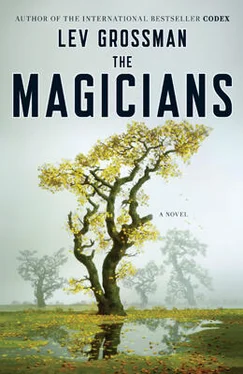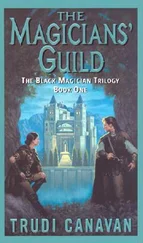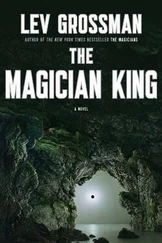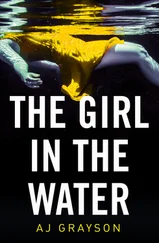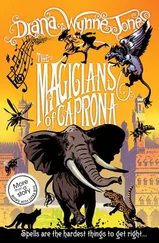No one had an answer to this. The room was silent. Quentin finally dared to glance over at Alice, but her face was a mask. It would almost have been better if she looked angry.
“I don’t know if you know this,” Penny said, “in fact I’m pretty sure you don’t, but I did most of my work at Brakebills on travel between alternate worlds. Or between planes, as we called them. Melanie and I.
“As far as we could determine it was an entirely new Discipline. Not that I was the first person ever to study the subject, but I was the first to have a special aptitude for it. My talents were so unusual that Melanie — Professor Van der Weghe — decided to pull me out of regular classes and give me my own course of study.
“The spellcraft was extremely involved, and I had to improvise a lot of it. I can tell you, a lot of what’s in the canon on this stuff is way off base. Way off base. They’re not seeing the whole picture, and the part of it they are seeing is by far the least important part. You’d think your friend Bigby would have some grasp of this stuff, but he has no idea. I was surprised, I really was. But there were still some issues I couldn’t resolve.”
“Such as,” Eliot said.
“Well, so far I’ve only been able to travel alone. I can transport my body and clothes and some small supplies, but nothing else and nobody else. Second, I can cross to the Neitherlands, but that’s it. I’m stuck there. The wider multiverse is closed to me.”
“You mean—?” said Janet. “Wait, so you’ve been to this amazing magical Interville but that’s it?” She actually looked underwhelmed. “I thought you were coming in here this badass multidimensional desperado and all.”
“No.” Penny could be defensive when he felt like he was under attack, but he was so autistically focused right now that even direct mockery bounced right off him. “My explorations have been limited to the City. It’s quite a rich environment in itself, an amazingly complex artifact, to a magically trained eye. There’s so little information in the books— The Wandering Dune is told through the eyes of a child, and it’s not clear to me that either Plover or the Chatwins had any particular command of the techniques they describe. I thought at first that the entire place was a kludge, a virtual environment that functioned as a kind of three-dimensional interface hacked onto a master interdimensional switchboard. Not that it’s much of an interface. A maze of identical unlabeled squares? How much help is that? But it was all I could think of.
“The thing is, the more I study it, the more I think it’s exactly the opposite — that our world has much less substance than the City, and what we experience as reality is really just a footnote to what goes on there. An epiphenomenon.
“But now that we have the button”—he patted his jeans pocket—“we’ll learn so much more. We’ll go so much further.”
“Have you tried it?” Richard asked.
Penny hesitated. For somebody who so obviously wanted to be hardcore, he was painfully transparent.
“Of course he hasn’t,” Quentin said, smelling blood. “He’s scared shit-less. He has no idea what that thing is, only that it’s dangerous as hell, and he wants one of us to be a guinea pig.”
“That’s absolutely not true!” Penny said. His ears were getting red. “An artifact on this level is best faced in the company of allies and observers! With the proper controls and safeguards! No reasonable magician—”
“Look. Penny.” Now Quentin could play the reasonable one, and he did it with maximum nastiness. “Slow down. You’ve gotten so far ahead of yourself, you can’t even see how you got there. You’ve seen an old city, and a bunch of pools and fountains, and you’ve got a button with some heavy-duty enchantments on it, and you’re looking for some framework to fit them all together, and you’ve latched on to this Fillory thing. But you’re grasping at straws. It’s crazy. You’re cramming a few chance data points into a story that has nothing to do with reality. You need to take a giant step back. Take a deep breath. You’re way off the reservation.”
Nobody spoke. The skepticism in the room was palpable. Quentin was winning, and he knew it. Penny looked around at his audience beseechingly, unable to believe that he was losing them.
Alice stepped forward into the empty circle around Penny.
“Quentin,” she said, “you have always been the most unbelievable pussy.”
Her voice broke only a little as she said it. She grabbed Quentin’s wrist with one hand and shoved the other one into the left-hand pocket of Penny’s baggy black jeans. She fumbled for an instant.
Then they vanished together.
Quentin was swimming. Or he could have been swimming, but in fact he was just floating. It was dark, and his body was weightless, suspended in chilly water. His testicles shrank in on themselves away from the cold. Wavering, heatless sunbeams lanced down through the darkness.
After the first shock the coolness of the water, combined with the weightlessness, felt indescribably good to his dried-out, feverish, unshowered, hungover body. He could have thrashed and panicked, but instead he just let himself hang there, arms out in a dead man’s float. Whatever was coming next would come. He opened his eyes, and the water bathed them in moist healing chill. He closed them again. There was nothing to see.
It was a glorious relief. The numbness of it was just magnificent. At the moment when it had been at its most intolerably painful, the world, normally so unreliable and insensitive in these matters, had done him the favor of vanishing completely.
Granted, he would need air at some point. He would look into that in due course. As bad as things were, drowning would still be a hasty course of action. For now all he wanted was to stay here forever, hanging neutrally buoyant in the amniotic void, neither in the world nor out of it, neither dead nor alive.
But an iron manacle was clamped around his wrist. It was Alice’s hand, and it was pulling him upward ruthlessly. She wouldn’t let him be. Reluctantly, he joined her in kicking toward the surface. Their heads broke water at the same moment.
They were in the center of a still, hushed, empty city square, treading water in the round pool of a fountain. It was absolutely silent: no wind, no birds, no insects. Broad paving stones stretched away in all directions, clean and bare as if they’d just been swept. On all four sides of the square stood a row of stone buildings. They gave off an impression of indescribable age — they weren’t decrepit, but they’d been lived in. They looked vaguely Italianate; they could have been in Rome, or Venice. But they weren’t.
The sky was low and overcast, and a light rain was falling, almost mist. The droplets dimpled the still surface of the water, which made its way into the pool from the overflowing bowl of a giant bronze lotus flower. The square had the air of a place that had been hastily abandoned, five minutes ago or five centuries, it was impossible to tell.
Quentin treaded water for a minute, then took one long breaststroke over to the stone lip. The pool was only about fifteen feet across, and the rim was scarred and pocked: old limestone. Bracing himself with both hands, he heaved himself up and and flopped out of the water onto dry land.
“Jesus,” he whispered, panting. “Fucking Penny. It is real.”
It wasn’t just because he hated Penny. He really hadn’t thought it was true. But now here they were in the City. This was it, the actual Neitherlands, or something that looked uncannily like them. It was unbelievable. The most naïve, most blissfully happy-sappy dream of his childhood was true. God, he’d been so wrong about everything.
Читать дальше
